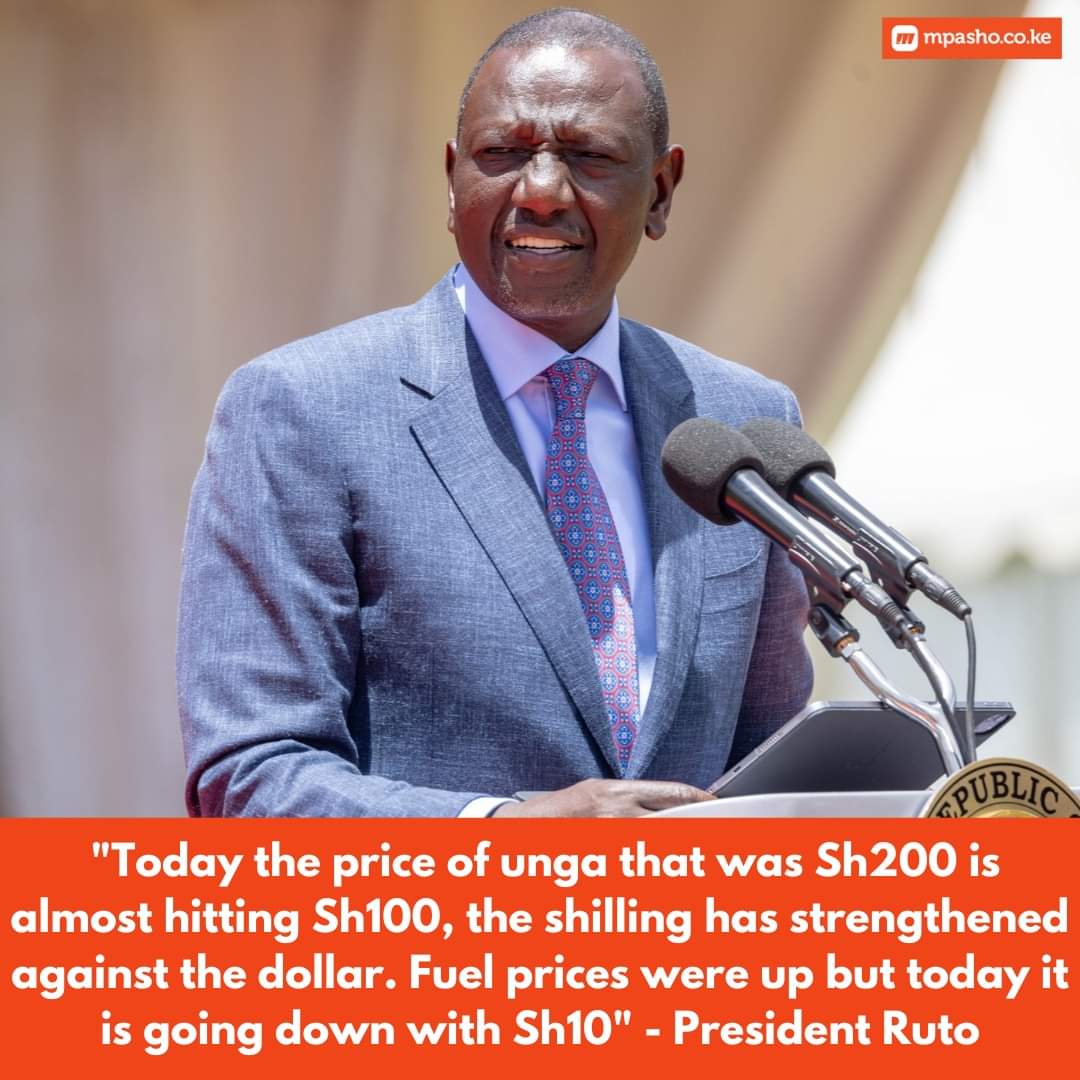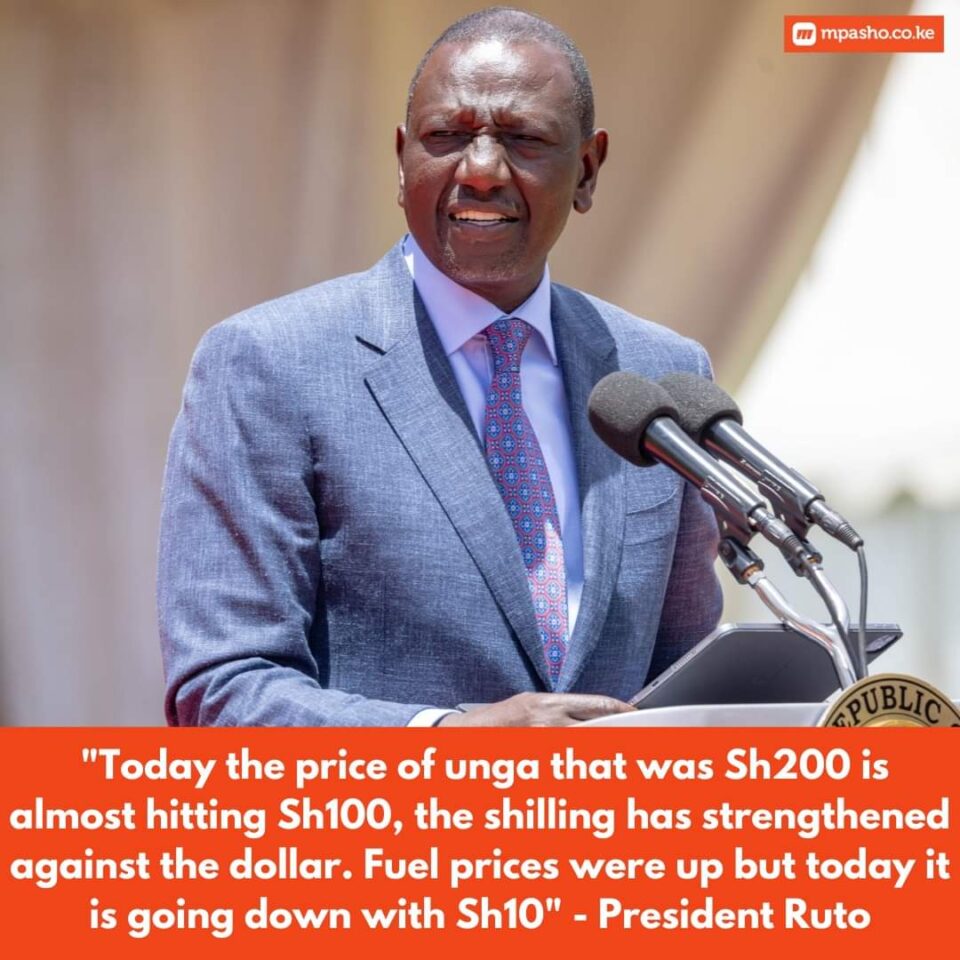In a surprising turn of events, Kenya’s petroleum market has witnessed a notable drop in maximum retail prices for the period spanning from 15th April to 14th May 2024. This significant decline comes as welcome news for consumers across the nation, signaling potential relief from previous cost burdens.
According to recent data released by the Energy and Petroleum Regulatory Authority (EPRA), the new maximum retail prices stand at Ksh.194.84 per liter for Super Petrol, Ksh.180.38 per liter for Diesel, and Ksh.170.06 per liter for Kerosene. These figures mark a considerable decrease from previous levels and reflect a shift in global oil dynamics that have influenced local markets.
The reduction in petroleum prices is attributed to several factors that have contributed to a more favorable pricing environment for consumers. One of the primary drivers is the stabilization of global oil markets, with decreased geopolitical tensions and increased production levels from major oil-producing countries.
Additionally, the strengthening of the Kenyan shilling against major currencies has played a role in moderating import costs, further supporting the downward trend in prices.
Consumers, particularly those reliant on diesel for transportation and kerosene for household energy needs, are expected to benefit significantly from these lower prices. The cost savings could translate into improved affordability for essential services and reduced inflationary pressures in the economy.
Businesses that rely on fuel as a major input, such as transport companies and manufacturing industries, are also poised to experience positive effects from the price drop. Lower fuel costs can lead to improved profit margins and competitiveness, fostering economic growth and sustainability.
However, while the decrease in petroleum prices brings relief to consumers and businesses, it also underscores the volatility and interconnectedness of global energy markets. Fluctuations in oil prices can be influenced by various factors, including geopolitical events, supply-demand dynamics, and macroeconomic conditions. As such, ongoing monitoring and adaptation to market changes remain crucial for stakeholders in the energy sector.
In light of these developments, experts advise consumers and businesses to leverage the current favorable pricing environment responsibly. This includes implementing energy-efficient practices, exploring alternative energy sources, and maintaining prudent fuel consumption habits to maximize cost savings and environmental sustainability.
The government, through EPRA and relevant regulatory bodies, continues to monitor the petroleum market closely to ensure transparency, fair pricing, and adherence to regulatory standards. Public awareness campaigns and initiatives promoting energy conservation and sustainability are also being encouraged to create a more resilient and efficient energy ecosystem.
The recent drop in maximum retail petroleum prices in Kenya signifies a positive development for consumers, businesses, and the overall economy. While celebrating this welcome change, stakeholders are reminded of the need for vigilance, responsible usage, and long-term strategies to navigate the dynamic energy landscape effectively.
As Kenya navigates these shifts in the petroleum market, stakeholders are also considering the broader implications of reduced fuel costs. One notable impact is the potential boost to consumer spending and disposable income.
With lower expenses on fuel, households may allocate more resources to other areas such as education, healthcare, and leisure activities. This increased purchasing power can stimulate demand in various sectors of the economy, contributing to economic resilience and recovery.
Furthermore, the decrease in petroleum prices aligns with global trends in energy transition and sustainability. As countries worldwide focus on reducing carbon emissions and transitioning to renewable energy sources, lower fossil fuel prices can serve as a catalyst for investment in cleaner technologies.
Kenya, with its ambitious renewable energy targets and initiatives, stands to benefit from a more cost-competitive energy landscape that encourages sustainable practices and innovation.
The transportation sector, which heavily relies on petroleum-based fuels, stands out as a key beneficiary of reduced fuel costs. Lower operational expenses for transport operators can translate into more affordable fares for commuters and improved accessibility to transportation services. This, in turn, promotes mobility, economic activity, and connectivity across different regions of the country.
Additionally, industries that utilize petroleum products as raw materials or energy inputs may experience cost savings, potentially leading to increased production, job creation, and competitiveness in both domestic and international markets.
The manufacturing sector, in particular, plays a critical role in Kenya’s economic diversification and export potential, and favorable energy prices can bolster its contribution to GDP growth and industrial development.
It’s essential to note that while lower petroleum prices offer immediate benefits, they also underscore the need for sustainable energy policies and investments in renewable energy infrastructure. Kenya’s progress in renewable energy, including initiatives such as the Lake Turkana Wind Power project and increased solar energy adoption, reflects a strategic shift towards cleaner and more resilient energy systems.
Moreover, the impact of petroleum price fluctuations extends beyond economic considerations to environmental and social dimensions. Reduced fuel costs can alleviate pressure on natural resources, mitigate pollution and carbon emissions, and contribute to climate change mitigation efforts. This aligns with Kenya’s commitments to environmental conservation, sustainable development, and the global transition to a low-carbon future.
In conclusion, the drop in maximum retail petroleum prices in Kenya represents a multifaceted opportunity for sustainable development, economic growth, and improved quality of life for citizens. By harnessing the benefits of lower fuel costs while advancing renewable energy agendas, Kenya can position itself as a leader in energy transition and resilience, driving inclusive and sustainable development across sectors


